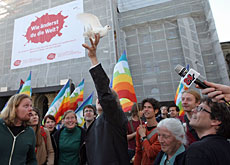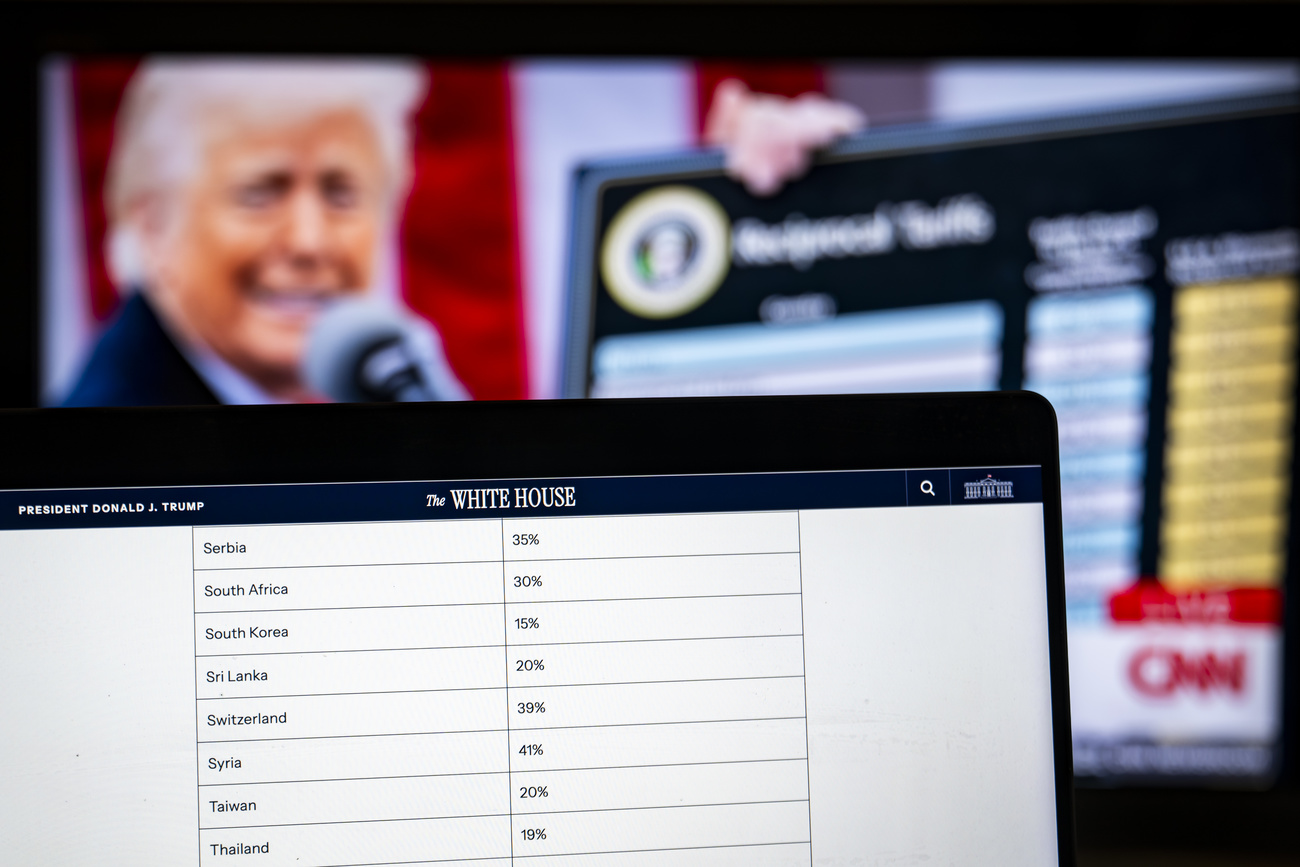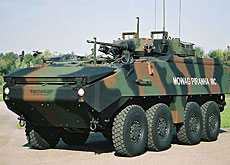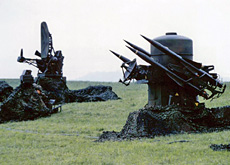
Pacifists make a move to end arms exports

A flight of doves was released outside parliament in the capital, Bern, on Friday to draw attention to a call for a ban on arms exports.
The action coincided with the handing in of signatures for a people’s initiative which will give Swiss voters the final say on the issue.
The backers of the initiative chose World Peace Day to hand in 109,000 signatures they had collected, and celebrated with a flag-waving rally on Parliament Square.
“Swiss weapons kill – worldwide,” the authors of the initiative said on their website.
They want to outlaw the export and transfer of all military material, including technology that can be used for the development, production and use of weapons.
The aim is to prevent Swiss armaments firms from getting round the ban by producing arms abroad or by allowing them to be produced under licence.
Green Party parliamentarian Jo Lang said the level of support for the campaign showed that many people were against “war on terror” policy.
Social Democrat parliamentarian André Daguet said money would be better spent on development than on armaments.
“Investing in development aid does not only help improve living conditions, but also improves international security,” he said.
Broad coalition
The initiative was launched by Switzerland’s leading pacifist organisation, Switzerland without an Army, and was backed by a broad coalition of 35 peace and leftwing groups and parties.
A similar proposal in 1997 was rejected at the ballot box by more than three quarters of voters .
The export of weapons has long been controversial in Switzerland. Only last month a planned sale of Swiss-made armoured vehicles to Romania aroused criticism because they would be used in Iraq.
Exports authorised since 2006 include sales to Saudi Arabia, India, Pakistan and the United Arab Emirates.
In other cases the government has refused permission for arms to be exported, for the sake of maintaining peace, international security and regional stability. For legal and diplomatic reasons no details are released.
A recent report by the Geneva-based Small Arms Survey criticised Switzerland’s lack of transparency about arms exports. It said Switzerland provided weapons to countries which violate human rights.
Last year Switzerland exported war materiel worth SFr397.6 million ($339 million), according to the economics ministry. The sales accounted for 0.21 per cent of the total exports in 2006.
swissinfo with agencies

More
People’s initiative
Under Swiss law the government cannot sell war materiel to countries involved in conflict.
The legislation covers arms systems, ammunition and explosives as well as other material used for combat training.
Checks and controls on arms deals are made by the State Secretariat for Economic Affairs (Seco), the cabinet and a parliamentary committee.

In compliance with the JTI standards
More: SWI swissinfo.ch certified by the Journalism Trust Initiative




































You can find an overview of ongoing debates with our journalists here . Please join us!
If you want to start a conversation about a topic raised in this article or want to report factual errors, email us at english@swissinfo.ch.